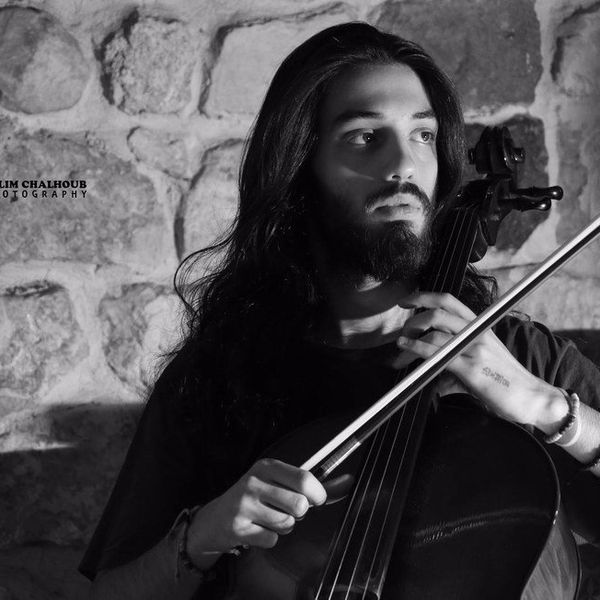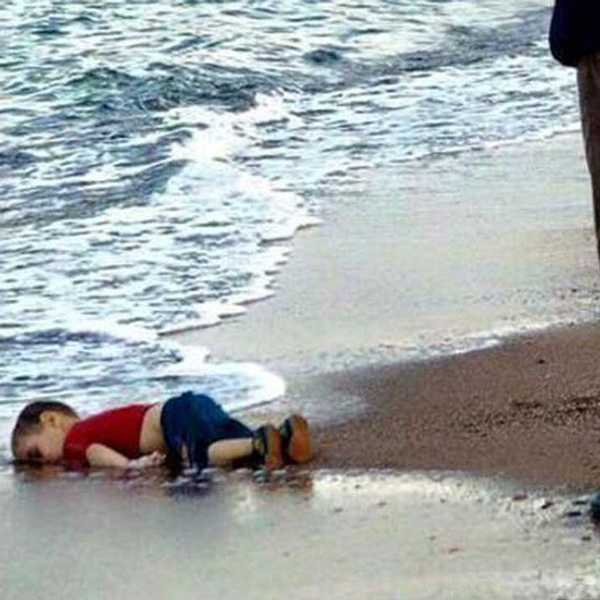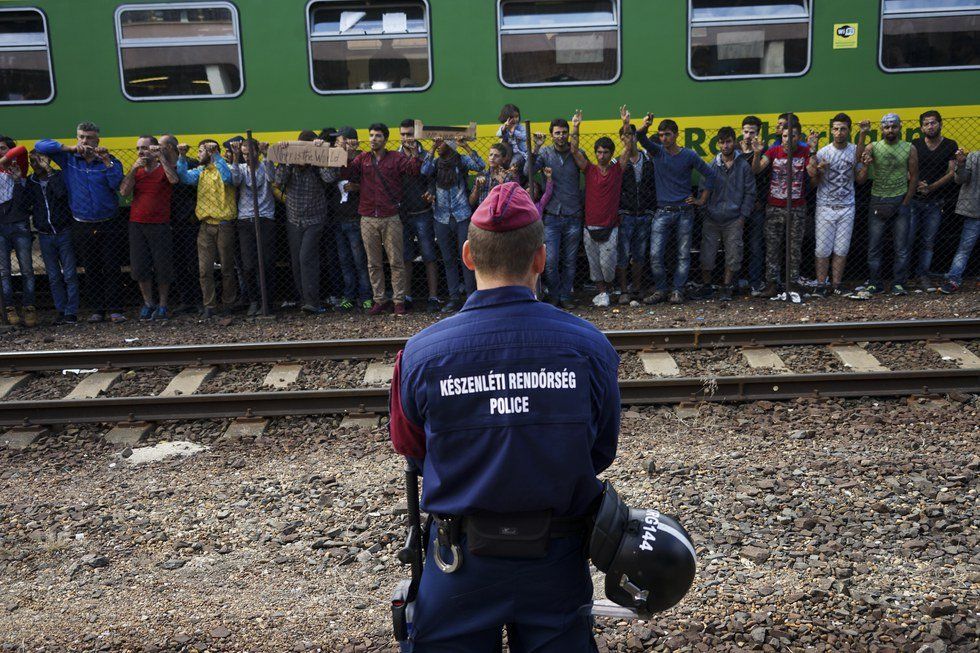Syrian refugees flooded into Germany in search of asylum over the weekend. Thousands of tired, battered men, women and children traveled to cities throughout Germany such as Munich, and Dortmund, many more continue to travel north through the Niedersachsen region in order to travel on up to Hamburg and even into Denmark and Sweden in search of safety. The German people greeted the refugees with open arms; many of whom waited at train stations in areas such a Bremen, a city in central Germany, to greet the refugees in the early hours of the morning with smiles, flowers and chocolates. According to the BBC, German chancellor Angelika Merkel is fully aware of the consequences behind the immigration saying the “breathtaking” amount of immigrants will “occupy and change” [Germany]. Merkel is also prepared to take on 800,000 immigrants this year, and the government is planning to set aside 6 billion euros in the effort to help.
Government shelters have been set up throughout Germany to provide water, food and shelter for the immigrants. Though the challenges of learning a new language and transitioning to the complexities of a strange culture are large, Germany is providing something unique that many other countries have not offered the refugees. In this, the Syrians have hope and a bright outlook on the future. Anna Holligan of the BBC asked a Syrian father and husband about his journey and why he and his family decided not to stay in Turkey.
"I have two kids, my wife is pregnant, I can't get work in Turkey, there is no future for my family there. I didn't escape from war to live on the streets."
Germany is one of the most socially and economically stable countries in Europe. Although mostly government officiated, the German people stand behind Merkel in welcoming the refugees in. Many citizens are helping to aid the shelters and some even offer their homes for extra support.
“International investors rate Germany as one of the most attractive centers. Direct investment from outside the country now stands at EUR 460 billion and includes major investments from corporations such as General Electric and AMD from the USA. They value the central geographic location and the stability of the law. Furthermore, in comparison with other countries Germany scores particularly well with regard to infrastructure (traffic, telecommunications), the quality of its higher education institutes and research facilities, research and development, and the qualifications of its workforce. More than three-quarters of adults have trained in a profession and 13 percent of them have a university degree. Investors also rate the quality of life in Germany highly."
According to the paragraph above, one understands that the German government has built a substantial infrastructure that creates a general sense of well –being, stable jobs and healthy living environment for its inhabitants. It comes as no surprise that Germany’s government is making such leaps to accommodate the Syrian refugees, and why those Syrians want to be there.
Another fascinating story about the mass emigration of Syrian refugees into Europe and other countries was that of Iceland, which proved to be quite unique. It all started with an online social media campaign which gained tremendous support from the Icelanders.
Iceland was recently named "most peaceful country " in the Global index, whilst Syria was named "least peaceful". That being said, it seemed like the perfect destination for Syrian refugees to leave their former country to find solace in one of the "best countries" in the world.
The most peaceful country, having a population of only 330,000[2] in total, had firstly stated that they would only accept 50 people a year. Yet, seeing the disastrous and horrifying images of refugees dying and Syria's overall condition, Bryndis Bjorgvinsdottir, author and professor, urged, through a Facebook group named "Kæra Eygló Harðar – Sýrland kallar" (‘Dear Eygló Harðar – Syria is calling’), the Icelandic people to call on the government to increase the country's intake of refugees to help those in need.
This online campaign resulted in 11,000 Icelanders offering to take in Syrian refugees and to provide them with food, clothes and schooling, as well. A single mother with a 6-year old son responded with an open letter which stated the following, “I’m happy to look after children, take them to kindergarten, school and wherever they need. I can cook for people and show them friendship and warmth. I can pay the airfare for one small family. I can contribute with my expertise and assist pregnant women with pre-natal care.”
The overwhelming response to this campaign has led to the Prime Minister Sigmundur David Gunnlaugsson to appoint a committee of ministers to re-discuss the "50-people-per-year" policy. “I assume that during Tuesday’s cabinet meeting I will propose the establishment of a special committee of ministers to discuss the problem and evaluate how Icelanders can respond, how we can contribute as much as possible,” Sigmundur told RÙV.
The overwhelming need to aid fleeing refugees is quite apparent on a global scale. Comparing the generosity of these two nations differs in some ways and yet shows signs that each country must do what it can do to alleviate the growing crises. As the refugees continue to escape out of their war riddled homes, other countries are under pressure to step up to the task. Though accepting an influx of so many people is the formula for economic destabilization of any country, the fact that 2.5 million Syrians are now refugees and 11 million are now displaced, including the fact that in some neighboring countries such as Lebanon some towns are made up of a 50% Syrian population, is a means that cannot be ignored by any foreign policy. The necessity outweighs private deliberation. The swift and immediate action taken by countries such as Germany and Iceland (whether citizen-driven or politically based) are steps in the direction of the future of global initiative leadership.





















